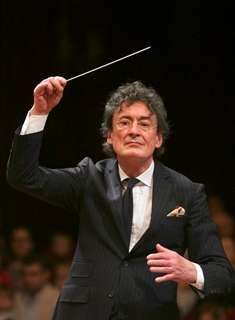|
Back
Warsaw on the Bosphorous Istanbul
Is Sanat Concert Hall
06/17/2016 -
Piotr Ilyitch Tchaïkovski: Romeo and Juliet
Sergei Rachmaninov: Rhapsody on a Theme of Paganini, opus 43
Mieczyslaw Weinberg: Symphony No. 4 in A minor, opus 61
Herbert Schuch (piano)
Orkiestra Akademii Beethovenowskiej, Jacek Kaspszyk (conductor)

J. Kaspszyk
Few may know of the historic friendship between Poland and Turkey, a friendship based on their mutual distrust of Russia and occasionally of the Habsburg Empire. The Ottoman Empire was the only major power that refused to recognize the final and tragic partition of Poland in 1795 by Russia, Prussia and Austria. To the annoyance of these three powers, at his reception of the diplomatic corps, the Ottoman Emperor would ask “Where is the delegate from Lehistan (Poland)?” to which the chef du protocole would reply “He was impeded due to vital circumstances”. Major Polish immigration to Istanbul since the partition till the mid-nineteenth century led to the creation of Polonezköy (The Polish Village) in 1842. This long historic friendship may be one reason for the enthusiastic reception the Warsaw-based Beethoven Academy Orchestra was given in their concert on June 17 as part of the venerable Istanbul Music Festival in its 44th season.
The concert opened with an impassioned rendition of Tchaikovsky’s Romeo and Juliet Fantasy Overture. Under Jacek Kaspszyk, the orchestra showed its ability to contrast the lyrical slow movements with the anxious and dramatic passages of the piece. The highlight of the evening was Rachmaninov’s Rhapsody on a Theme of Paganini. It was pleasing to see both German pianist Herbert Schuch and Kaspszyk have the same conception of the piece as a serious, almost solemn work despite the exuberant pianism. The introduction of the Dies irae theme from the plainchant requiem mass transforms this piece into a work of considerable gravity despite one’s expectation of a lighter work seemingly dedicated to pianistic variations. The Andante cantabile 18th variation, the popular and most famous, transitioned gloriously from its virtuosic precursors without any of the triviality that is sometimes experienced when the conductor opts for the facile. Anecdotally known as the crème de menthe variation, the flamboyant and technically demanding finale had intimidated Rachmaninov himself into drinking a shot of crème de menthe prior to playing it to keep his nerves steady. This difficult 24th variation was played with astonishing, almost intimidating ease by Herbert Schuch. As evidence that this piece is the most Lisztian of Rachmaninov’s works, the pianist chose Liszt’s La campanella for an encore. He introduced the encore in Turkish to the public’s delight. Schuch’s exceptional pianistic abilities and dazzling speed were reminiscent of the last great Lisztians, Jorge Bolet, Earl Wild and Shura Cherkassky, who unabashedly thrilled with pure virtuosity.
Meant to be the major piece in the program, the Turkish premiere of Mieczyslaw Weinberg’s Fourth Symphony was the least appealing. The Polish orchestra is perhaps championing the works of the Polish-born Soviet composer. His being a disciple of Shostakovich is clear, and it very much shows in Weinberg’s mix of Angst, humour and occasional folk tunes. Judging this one work, the music is derivative and its pale imitation style can at times be irritating. The most beautiful part of the symphony was its third slow movement, the Adagio-Andantino. It opens as a dialogue between the cellos and the violins that increasingly becomes gloomier and gloomier. The theme played by the cellos is repeated by the flutes before folkloric tunes take over, initially evoking nostalgia and self pity and culminating into resignation. The symphony’s final movement, Vivace, is dominated by the brass instruments, inspiring a contrast of bombast and derision.
The Istanbul Music Festival presents its events at different venues throughout the city. Going to the Festival’s events is one way of exploring the various districts of this city of over 15 million inhabitants. This concert was given at Is Sanat Concert Hall in the posh Levent area, quite far from the centre, that few non-locals would venture to visit unless planning to do serious high end shopping.
Istanbul Music Festival
Ossama el Naggar
|